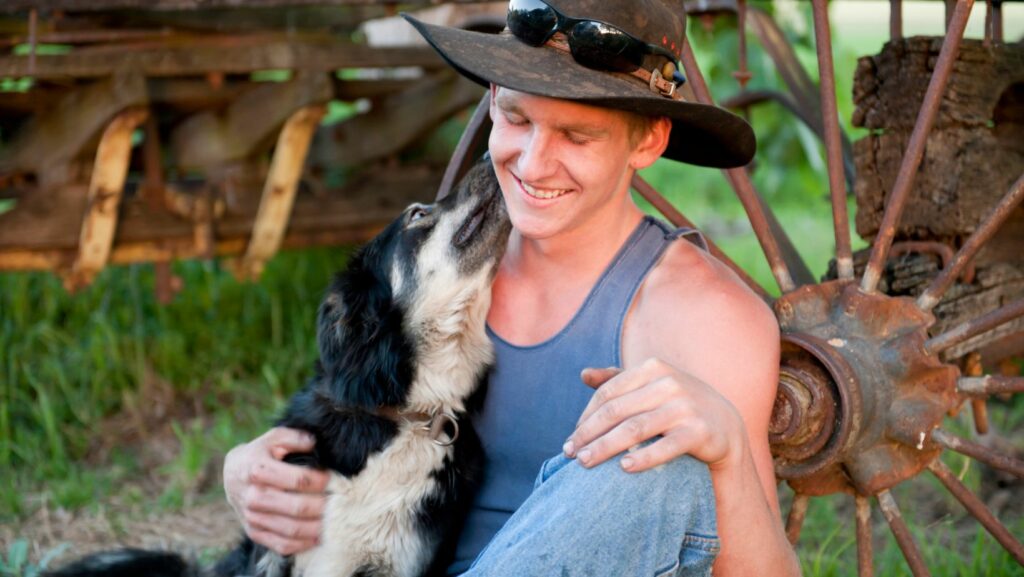Key Takeaways
- Emerging Career Field: Farmer’s dog careers combine animal care with sustainable agriculture, catering to a growing demand for nutritious pet food and eco-friendly practices.
- Diverse Roles Available: Key positions include veterinary nutritionists, animal trainers, pet therapists, and farmers, each contributing to animal health and welfare.
- Skills Needed: Success in farmer’s dog careers requires a blend of technical skills (like veterinary knowledge and agronomy expertise) and soft skills (such as communication and empathy).
- Educational Pathways: Various degree programs, certifications, workshops, and seminars are available to train individuals in animal welfare and sustainable farming practices.
- Promising Job Market: The job market for farmer’s dog careers is rapidly expanding with competitive salaries, reflecting the increasing importance of responsible pet ownership and sustainable agricultural practices.
In the ever-evolving world of pet care, the rise of farmer’s dog careers is capturing attention. These roles blend passion for animals with a commitment to sustainable practices, creating a unique niche in the agricultural and pet industries. With an increasing number of pet owners seeking fresh, nutritious options for their furry friends, the demand for skilled professionals in this field is on the rise.
From nutritionists crafting balanced meals to trainers ensuring dogs thrive in their environments, farmer’s dog careers offer a variety of pathways. Each role plays a crucial part in promoting animal health and well-being while supporting local farming initiatives. As the industry grows, so does the opportunity for those looking to make a meaningful impact in the lives of dogs and their owners.
Farmer’s Dog Careers
Farmer’s dog careers represent a unique intersection of animal care and sustainable agriculture. These roles focus on enhancing the health of dogs while promoting eco-friendly practices within the pet care industry. Professionals in this field include:
- Veterinary Nutritionists: They develop balanced diets tailored to specific breeds and health requirements, ensuring optimal nutrition for dogs.
- Animal Trainers: They implement positive reinforcement techniques to educate dogs, fostering well-rounded behavior in various environments.
- Pet Therapists: They provide physical and emotional support, using specialized methods to improve dogs’ emotional well-being and recovery from injuries.
- Farmers and Animal Husbandry Experts: They manage breeding and training practices that prioritize the health of both dogs and agricultural systems, promoting ethical treatment and care.
The growing demand for these positions reflects a broader movement towards responsible pet ownership and sustainable agricultural practices. Opportunities in farmer’s dog careers include roles within pet food companies, animal shelters, training facilities, and local farms. Each role contributes to a holistic approach to pet care and aims to enhance the welfare of animals and communities.
Types of Careers in Farming
Farming offers diverse career paths, each contributing to the efficiency and sustainability of food production and animal care. Below are several specialized sectors within the farming industry.
Livestock Management
Livestock management involves overseeing the health and productivity of farm animals. Professionals in this field include ranchers, herd managers, and veterinary technicians. Responsibilities encompass feeding, breeding, health monitoring, and welfare assessments. Effective livestock management ensures quality meat, dairy, and wool production while adhering to animal welfare standards.

Crop Production
Crop production focuses on growing and harvesting a variety of plants. Careers include crop farmers, consultants, and agronomists. Professionals develop planting schedules, select suitable seeds, and implement pest control measures. Crop production impacts food supply, sustainability, and environmental conservation, necessitating an understanding of climate and soil conditions.
Agronomy and Soil Science
Agronomy and soil science careers involve studying soil properties to optimize crop yield and health. Agronomists, soil scientists, and researchers develop strategies to improve soil health and reduce erosion. This field emphasizes sustainable farming practices and the responsible use of fertilizers and pesticides, contributing to long-term agricultural productivity.
Skills Required for Farmer’s Dog Careers
Farmer’s dog careers require a diverse skill set that enriches both animal welfare and sustainable practices. Professionals in this field must possess a combination of technical and soft skills to thrive.
Technical Skills
- Veterinary knowledge: Understanding animal health, nutrition, and behavior is crucial for roles like veterinary nutritionists and animal trainers.
- Agronomy expertise: Familiarity with soil health, crop management, and ecological practices supports effective farming routines.
- Animal husbandry: Skills in breeding, feeding, and caring for various farm animals ensure their well-being and productivity.
- Data analysis: Proficiency in assessing health records, growth patterns, and production metrics aids in making informed decisions.
- Technology utilization: Competence with farming machinery and software for tasks like crop monitoring and resource management enhances efficiency.
Soft Skills
- Communication: Clear communication with pet owners, stakeholders, and team members improves collaboration and service delivery.
- Empathy: A genuine understanding of animals’ needs fosters trust and promotes better care practices.
- Problem-solving: Analytical thinking and creativity help in addressing challenges related to animal care and farming operations.
- Time management: Prioritizing tasks efficiently ensures optimal productivity and care standards.
- Adaptability: Flexibility to changing conditions allows professionals to thrive in dynamic agricultural environments and respond effectively to unforeseen challenges.
Education and Training Opportunities
Education and training play critical roles in pursuing farmer’s dog careers. Various programs and institutions offer specialized training that equips individuals with the knowledge and skills necessary for success.
Degree Programs
- Veterinary Science Degrees: A veterinary science degree provides foundational knowledge in animal health, nutrition, and care. Students learn about animal anatomy, disease prevention, and treatment options.
- Animal Science Degrees: Animal science programs cover livestock management, animal behavior, and genetics. These degrees prepare graduates for roles in agricultural settings focusing on animal welfare.
- Agronomy Degrees: Agronomy programs emphasize soil management and crop production techniques. Graduates learn sustainable practices that benefit both plants and pets.
Certification Programs
- Certified Veterinary Technician: This certification focuses on hands-on animal care. Technicians assist veterinarians in various tasks, ensuring high-quality pet health care.
- Dog Trainer Certification: Certification programs for dog trainers teach behavior management, training techniques, and communication strategies. Certified trainers help improve pet behavior and owner relationships.
- Pet Nutrition Certification: This certification educates professionals about proper canine nutrition. It enables individuals to create balanced diets that promote dog health and well-being.
Workshops and Seminars
- Animal Behavior Workshops: These workshops enhance understanding of canine behavior. Participants learn practical techniques for behavior modification and training.
- Sustainable Farming Seminars: Seminars focus on sustainable agricultural practices. They explore innovative strategies that can improve crop yield while maintaining animal health.
- Pet Care Conferences: Conferences provide networking opportunities and educational resources. Professionals stay updated on industry trends and advances in pet care.
Individuals pursuing farmer’s dog careers benefit from diverse educational pathways. Each opportunity contributes to a deeper understanding of animal care, sustainable practices, and the interconnectedness of pet health and agriculture.
Job Market and Salary Expectations
The job market for farmer’s dog careers is expanding rapidly as the demand for sustainable pet care and agricultural practices increases. Veterinary nutritionists, animal trainers, pet therapists, and farmers play pivotal roles in meeting this demand. The average salary for these professionals varies significantly based on experience, location, and specialization.
| Job Title | Average Salary (Annual) |
|---|---|
| Veterinary Nutritionist | $60,000 – $90,000 |
| Animal Trainer | $30,000 – $70,000 |
| Pet Therapist | $40,000 – $80,000 |
| Livestock Manager | $50,000 – $80,000 |
| Agronomist | $55,000 – $85,000 |
Veterinary nutritionists focus on optimizing dog health through specialized dietary plans, generally earning between $60,000 to $90,000 annually. Animal trainers, who work on behavior modification and skill development, typically command salaries from $30,000 to $70,000, varying with expertise and settings.
Pet therapists, providing mental wellness support for animals, have salary expectations ranging from $40,000 to $80,000, influenced by sponsorship or clinic affiliations. Livestock managers oversee animal health and productivity, with salaries between $50,000 and $80,000, depending on farm size and location. Agronomists, specializing in soil and crop production optimization, generally receive salaries from $55,000 to $85,000.
Job growth in these sectors correlates with increasing awareness of responsible pet ownership and sustainable practices. They offer opportunities for individuals passionate about animal welfare and the agricultural sector. Positions within these fields frequently lead to advancements in technology use and methodologies, further enhancing career prospects.
Intersection of Animal Care And Sustainable Practices
Farmer’s dog careers represent a unique intersection of animal care and sustainable practices. As the demand for skilled professionals grows, individuals have the chance to make a meaningful impact on both pet health and agricultural sustainability.
With a diverse range of roles available, from veterinary nutritionists to livestock managers, there’s a path suited for various interests and skills. The emphasis on education and training ensures that aspiring professionals are well-equipped to thrive in this evolving field.
As awareness of responsible pet ownership and eco-friendly practices continues to rise, those pursuing farmer’s dog careers can look forward to fulfilling opportunities that contribute to a healthier world for pets and the environment alike.


